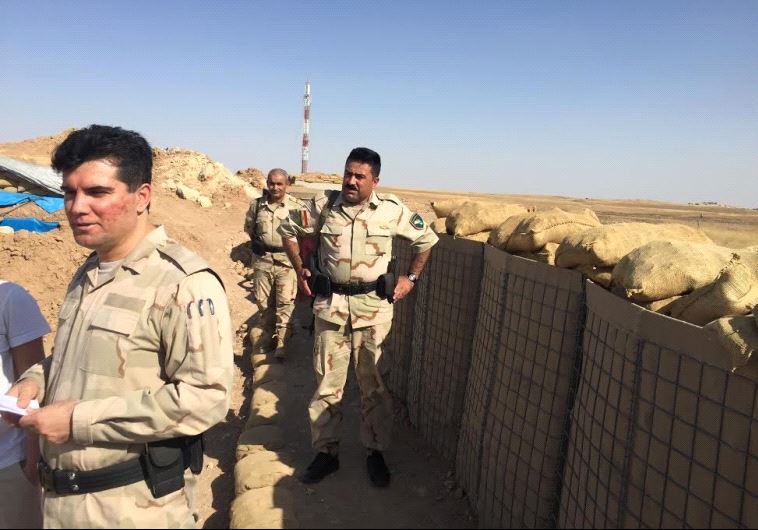Mosul dreams
Iraq’s army and the Kurdish peshmerga are within striking distance of Mosul, but strategy and regional concerns put them at a crossroads.
 Kurdish peshmerga stand at a sandbag position 17km east of Mosul overlooking Bashiqa.(photo credit: SETH J. FRANTZMAN)
Kurdish peshmerga stand at a sandbag position 17km east of Mosul overlooking Bashiqa.(photo credit: SETH J. FRANTZMAN)